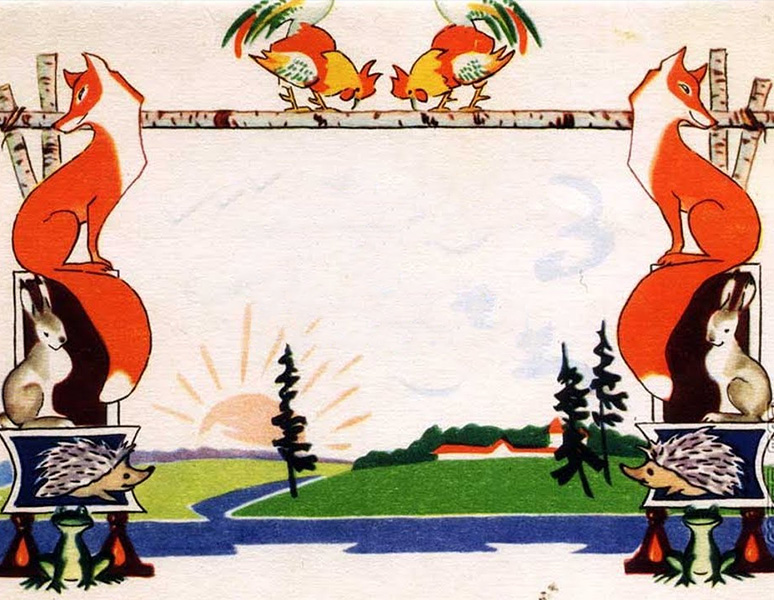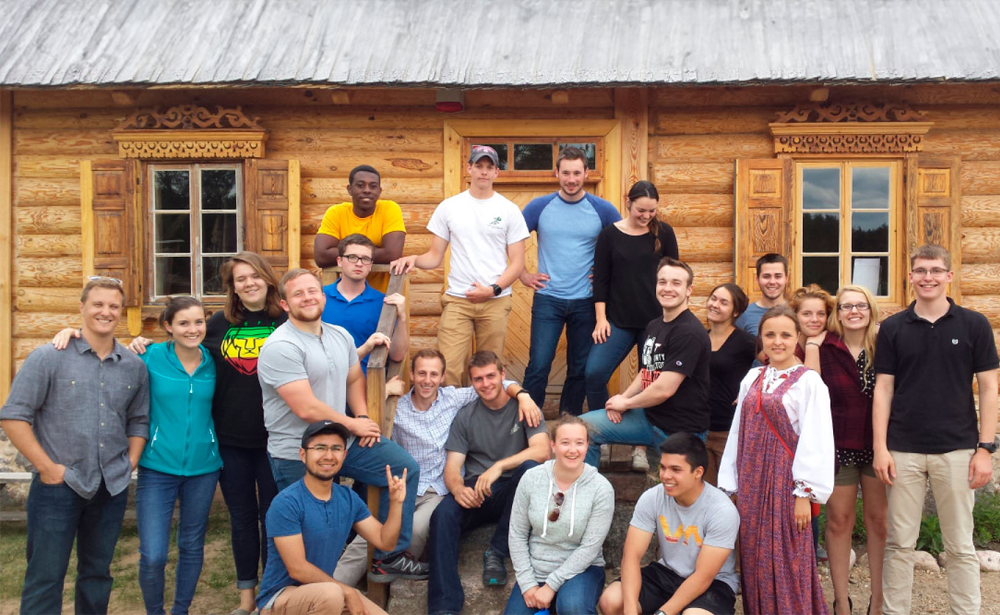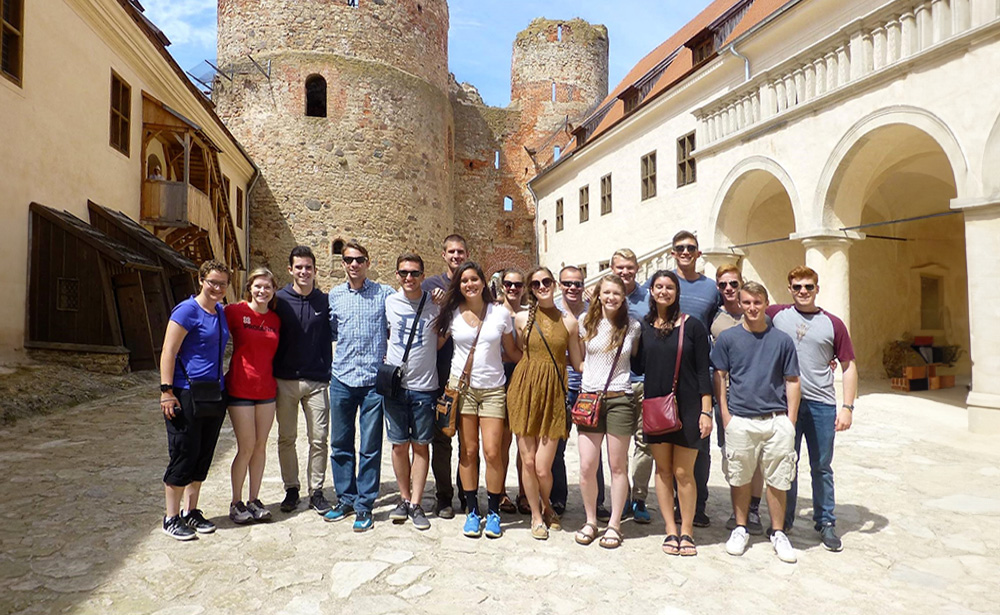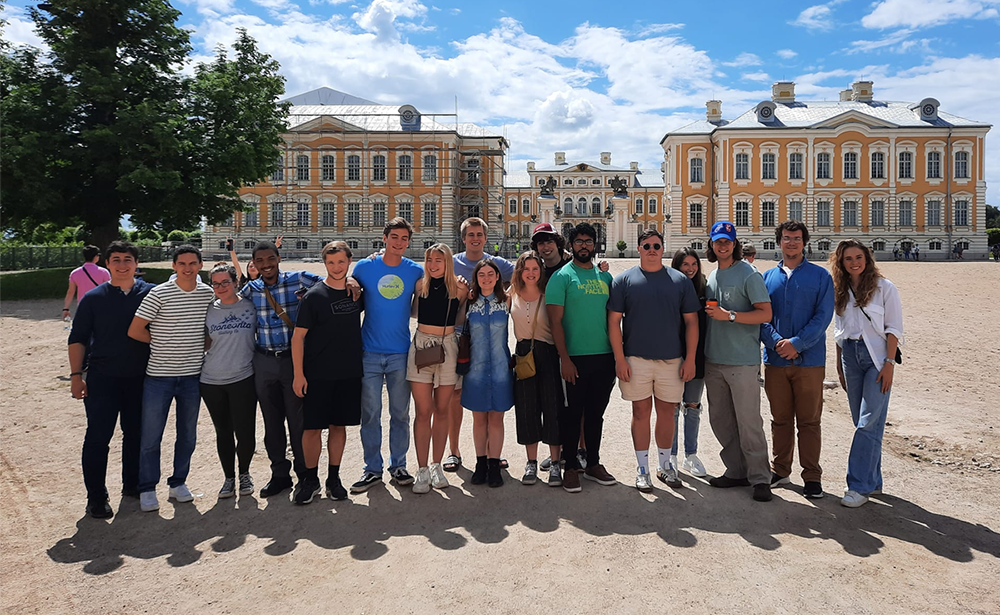Russian Proverbs
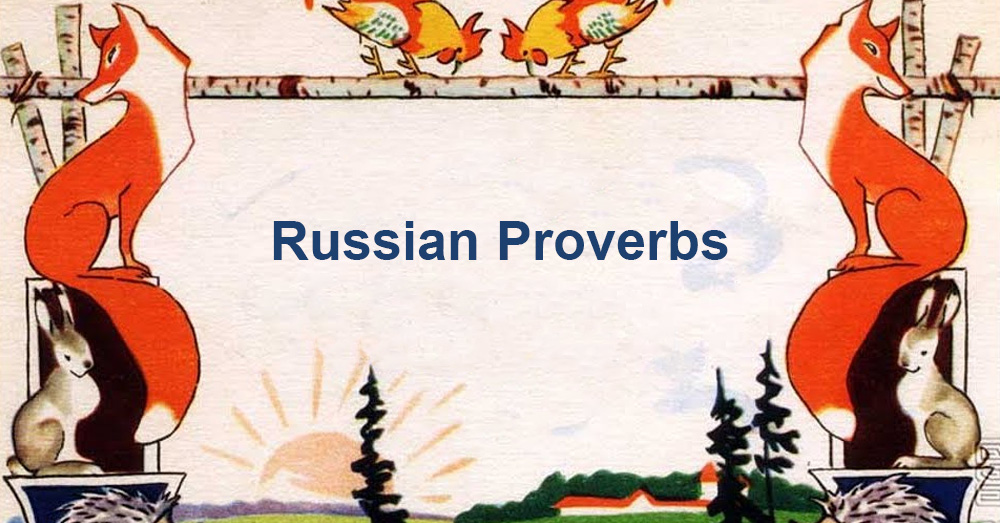
Russian proverbs are short and apt expressions that belong to the folk genre. Russian people made up most of this kind of word combinations, although, a lot of them came into the language from literature. In just a few words these phrases comment on some life situations.
People often mix proverbs with sayings. A saying is just a nice expression which can be substituted with other words. A proverb is a sentence which consists of two parts, and it conveys certain wise ideas.
Let’s look at a few popular Russian proverbs:
“Была не была!”
The English equivalent: “Whatever betide”. The word-for-word translation: “There was – there wasn’t”.
This proverb means the emotional expression of willingness to do something after some hesitation, to take risk. For example, “Была не была, пойду сдавать экзамен первым!”
“Голодный как волк”
The English equivalent: “Hungry like a wolf”. The word-for-word translation: “As hungry as a wolf”.
The proverb means that a person is really hungry, or starving. For example: “Я злой, потому что голодный как волк”.
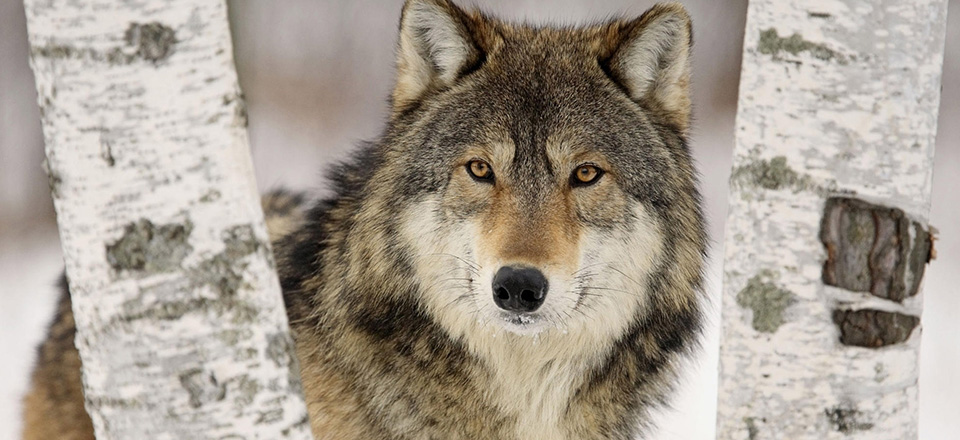
“Делать из мухи слона”
The English equivalent: “To make a mountain out of a molehill.” The word-for-word translation: “To make an elephant out of a fly”.
This proverb means a strong and unreasonable exaggeration of something that is insignificant. For example: “Мне кажется, ничего страшного здесь не случилось, не делай из мухи слона”.
“До свадьбы заживет!”
The English equivalent: “You’ll live”. The word-for-word translation: “It will heal before your wedding”.
The proverb is used to comfort someone who is injured. Russians most often use this proverb to comfort kids when they get hurt or injured. As kids are small and it is a long time until their wedding, which means wounds will heal before that time.

“Как две капли воды”
The English equivalent: “As alike as two peas in a pod”. The word-for-word translation: “Like two drops of water”.
When Russians say this proverb, they usually mean a complete physical resemblance between two people. They can also speak about the resemblance between things and phenomena. For example: “Мой сын похож на меня, как две капли воды”.
“Когда рак на горе свистнет”
The English equivalent: “When pigs begin to fly”. The word-for-word translation: “When the crawfish whistles on the mountain”.
This Russian proverb means that a person is reluctant to do something, or a complete impossibility for an event. There are a few versions of the origin of this expression. Science says that crawfish never leaves its habitat or crawl on the ground. However, it is believed that crawfish actually can communicate with sound hitting the bottom of the lake with claws to inform its colony of the danger.
“Ни пуха, ни пера!”
The English equivalent: “Good luck!”. The word-for-word translation: “Neither bird’s down, nor feather”.
This is one of the most popular proverb nowadays. People say it when they wish luck to a person. The person should reply: “К черту!”. This phrase originated among hunters. For hunters “feather” means a bird, and “down” means an animal.

“Старость – не радость”
The English equivalent: “An old ape has an old eye; Old age, boy, is no joy”. The word-for-word translation: “Old age is no fun”.
The proverb means that the older you get the less enthusiastic and cheerful about life you become, as with age people start falling ill more and more often.
“Хлеб – всему голова”
The English equivalent: “Bread is the staff of life” / “Bread – whole head!” The word-for-word translation: “Bread is head of everything”.
This is the most popular proverb about bread. Bread goes with every meal people take, as bread is filling and healthy. The proverb means that bread is an important part of every meal.
“Глаза боятся, а руки делают”
The English equivalent: “You never know what you can do till you try”. The word-for-word translation: “Eyes are afraid, but hands are doing the job”.
This phrase means that before we start a big project we are sometimes afraid that we won’t be able to complete it. However, the moment we start working, we realize that we can cope with any difficulties.

We gave you just a few examples of most popular and frequently used Russian proverbs. These proverbs do not only convey experience and wisdom of the generations of Russian people, but they can also help you make you speech more expressive!
You may be interested
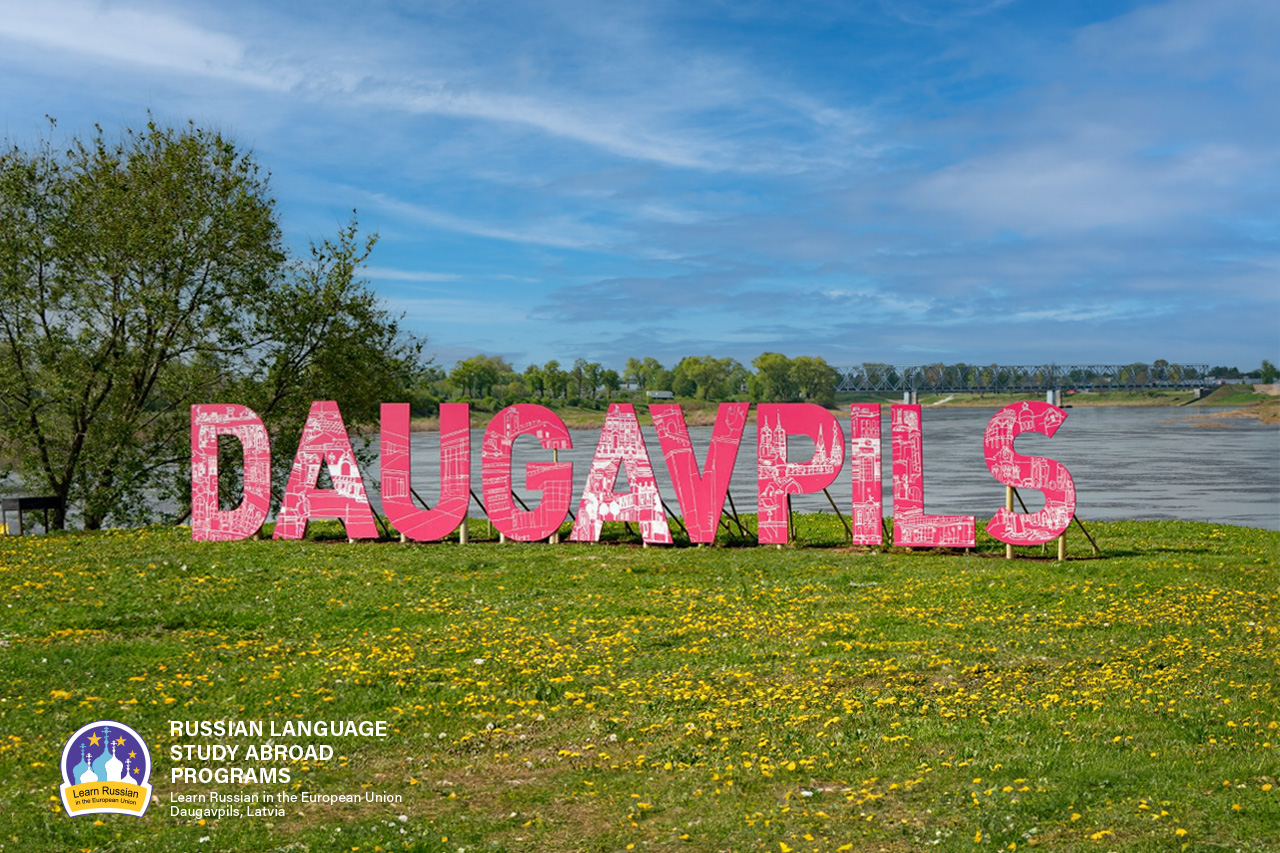
Why do people speak Russian in Daugavpils?
As it seems to us, Daugavpils is the best place to learn Russian now, because our city is situated in the EU and NATO, but at the same time 90% of the city’s population speak Russian at home.

ЭТЮД О ДВИНСКЕ
Etude on Dvinsk by F.Fedorov
The Baltic region is one of the most catastrophe prone regions of the 2nd millennium, especially its second part; it is the centre of attraction of ‘geopolitical’ interests of the European world. Probably the most tragic fate has befallen to the eastern part of the present Latvia and its multi-titled town of Dinaburg – Dvinsk – Daugavpils. During its 730 years long history, the town went through five rather autonomous periods of development, five different lives (German, Polish, Russian, Latvian, Soviet), and at the beginning of the 1990s it entered into the 6th period.
The history of Dinaburg – Dvinsk – Daugavpils is the history of five attempts by the town to begin its life anew; and this is determined not only by the fact that the town was four times burned down and had to start life from scratch, but first and foremost because each of these periods was characterized by a total change of ethnos and the socio-cultural field.
The present article deals with the cultural space of the town in one of the most efficient periods of its development – from the 1860s till World War I.


